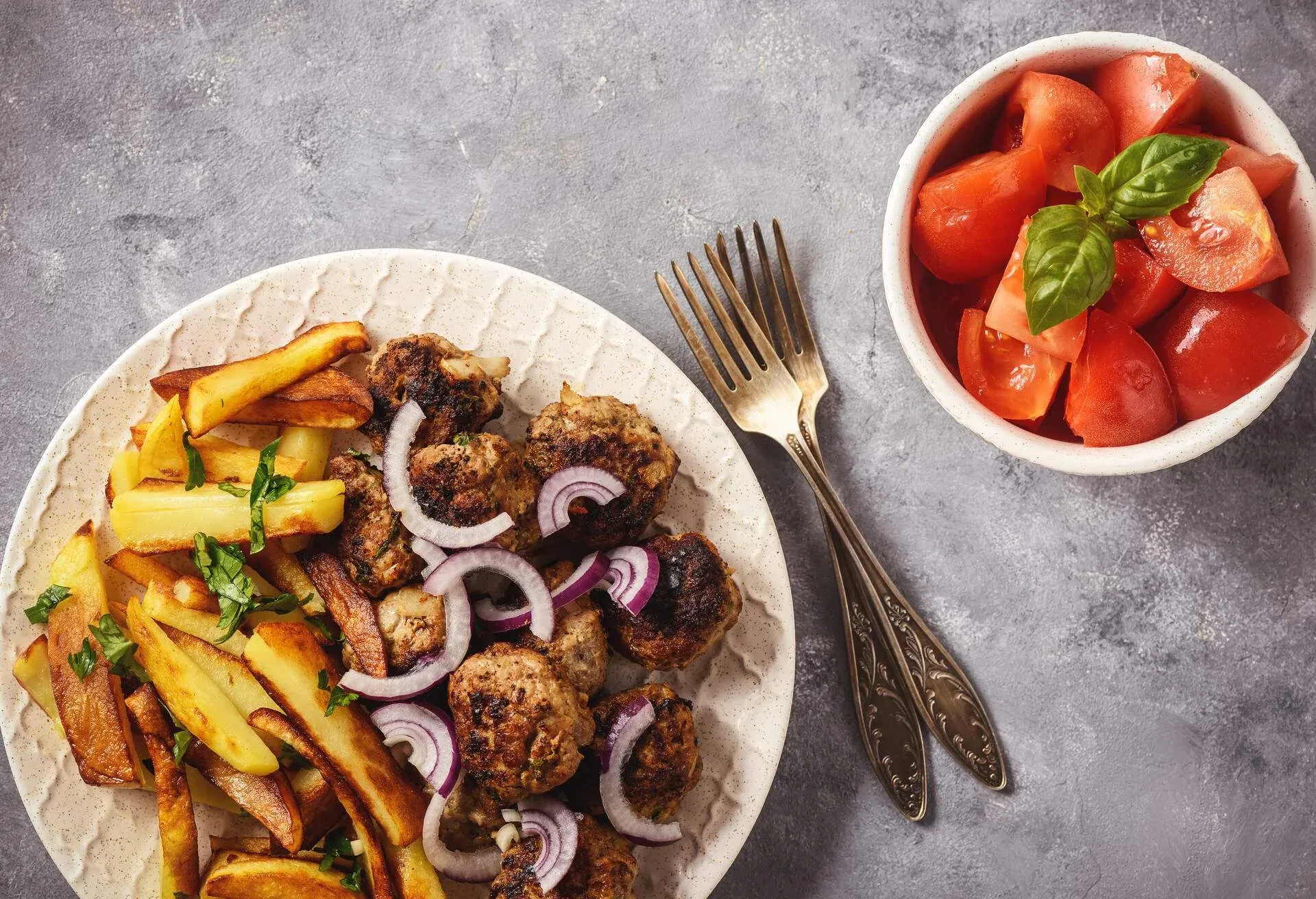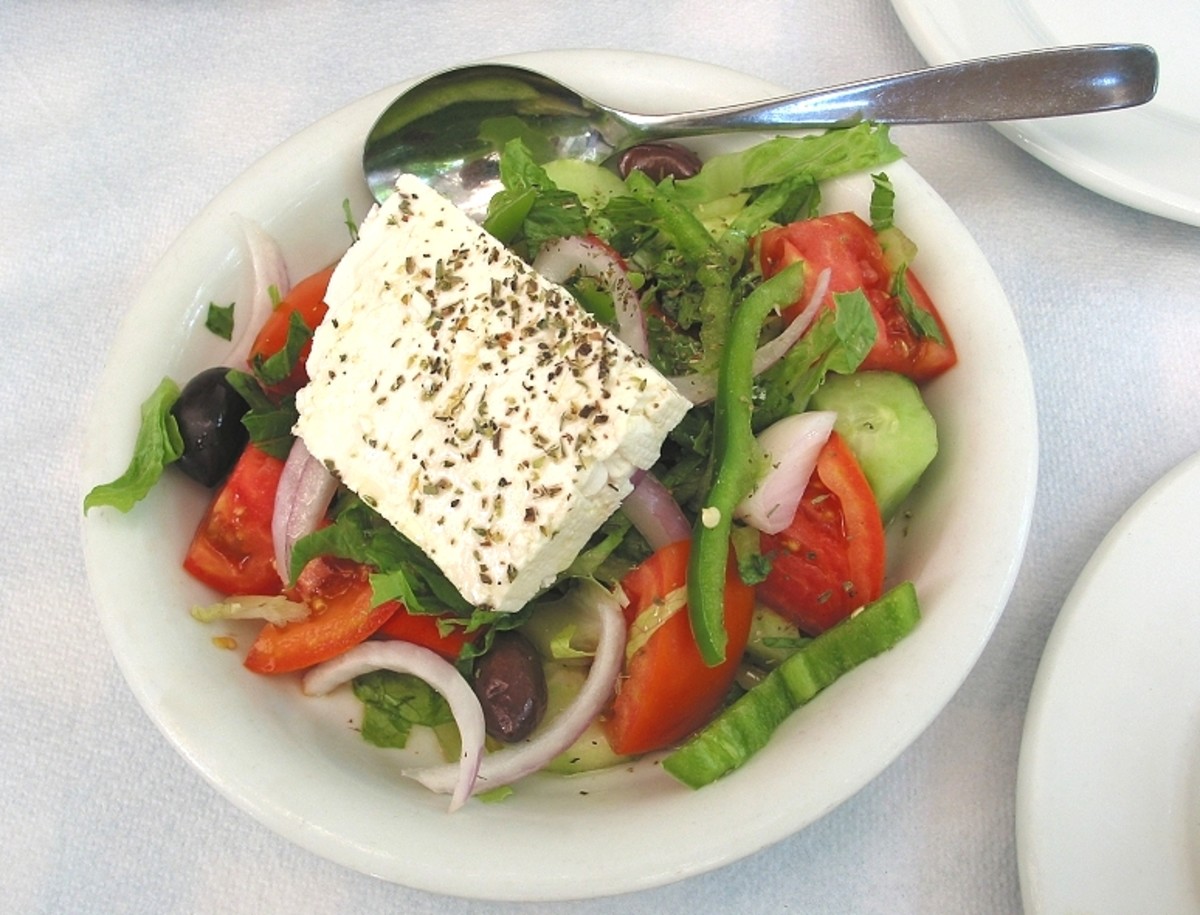Greek food—oh, where do I even start? It’s one of those cuisines that just feels like sunshine on a plate, bursting with fresh flavors and simple ingredients. But if you’ve ever wondered, “Is Greek food considered Mediterranean?” you’re definitely not alone. The quick answer? Yes, absolutely. Greek cuisine is a big, beautiful part of the Mediterranean food family. But there’s a bit more to the story than just a simple yes or no.
So, let’s take a little journey together and unpack what Mediterranean cuisine really means, and where Greek food fits in. Because while they’re closely linked, Greek food has its own personality, its own flair, and some unique touches that make it stand out from the crowd.
What Exactly Is Mediterranean Cuisine?
When people say “Mediterranean food,” they’re talking about a huge variety of dishes from all the countries that hug the Mediterranean Sea. Think Spain, Italy, Greece, Turkey, Lebanon, Morocco—the list goes on. Each place has its own take on the food, but there are some common threads that tie them all together.

For starters, Mediterranean cooking loves fresh, wholesome ingredients. Olive oil is basically the star here—it’s everywhere. Then you have tons of fresh vegetables like tomatoes, cucumbers, eggplants, and leafy greens. Legumes, nuts, and grains also play a big role. Herbs like oregano, rosemary, and basil add that aromatic punch. And of course, seafood is a staple, especially in coastal areas.
Another thing that’s pretty consistent is the cooking style. Grilling, roasting, baking—methods that bring out natural flavors without drowning everything in heavy sauces or artificial stuff. It’s all about balance and freshness. And beyond just the food, the Mediterranean lifestyle emphasizes enjoying meals with family and friends, savoring every bite, and eating seasonally.
Greek Food: A Heartbeat of Mediterranean Cuisine
Now, Greek food fits right into this Mediterranean picture like a perfect puzzle piece. If you’ve ever tasted Greek dishes, you know they’re all about fresh ingredients and simple preparations that let the flavors shine. Olive oil? Greek kitchens practically run on it. Fresh veggies? Always. Herbs like oregano, dill, and mint give dishes that unmistakable Greek touch.
Seafood is huge in Greece, thanks to all those gorgeous islands and miles of coastline. Fish grilled over open flames, tender octopus, and fresh calamari are everyday delights. And let’s not forget feta cheese—salty, crumbly, and utterly addictive—it’s almost impossible to imagine Greek food without it.
What’s amazing is how Greek cuisine balances simplicity and flavor. It’s not about piling on spices or complicated sauces. Instead, it’s about letting each ingredient tell its story. A squeeze of lemon here, a drizzle of olive oil there, a sprinkle of oregano—these little touches make all the difference.
What Makes Greek Food Unique Among Mediterranean Cuisines?
Sure, Greek food is Mediterranean, but it’s got its own vibe. For example, while some Mediterranean cuisines lean heavily on bold spices like cumin or saffron, Greek cooking tends to keep things lighter and herb-focused. Oregano, dill, and mint are the usual suspects, giving dishes a fresh, earthy aroma.
Cooking methods in Greece often center on grilling and baking. Think of those smoky souvlaki skewers or a perfectly baked moussaka bubbling with creamy béchamel. Greek food is hearty but never heavy, and it’s all about celebrating local ingredients.
Here’s a quick comparison to give you a clearer picture:
| Aspect | Mediterranean Cuisine | Greek Cuisine |
|---|---|---|
| Geographic Scope | Southern Europe, North Africa, Middle East | Greece and its islands |
| Key Ingredients | Olive oil, diverse herbs/spices, various cheeses | Olive oil, oregano, dill, mint, feta cheese |
| Flavor Profile | Varied, often stronger spices | Simple, fresh, herb-focused |
| Cooking Methods | Grilling, baking, slow-cooking | Grilling, baking |
| Signature Dishes | Paella, couscous, tagines, pasta | Moussaka, souvlaki, spanakopita, tzatziki |
Some Greek Classics That Show Off Mediterranean Roots
If you want to really get a taste of how Greek food fits into the Mediterranean scene, you can’t go wrong with these dishes:
- Moussaka: Layers of eggplant, minced meat, and creamy béchamel baked to golden perfection. It’s like the Greek answer to lasagna.
- Souvlaki: Skewers of marinated meat, usually pork or chicken, grilled over open flames—simple and utterly delicious.
- Spanakopita: Spinach and feta wrapped in flaky filo pastry. A perfect snack or appetizer.
- Tzatziki: Creamy yogurt mixed with cucumber, garlic, and dill. Refreshing and perfect with grilled meats.
- Dolmades: Grape leaves stuffed with rice and herbs, a little bite of Mediterranean magic.
- Greek Salad (Horiatiki): Tomatoes, cucumbers, olives, onions, and feta cheese, all dressed with olive oil and oregano. Simple, fresh, and iconic.
Why Greek Food Is So Good for You
Here’s the thing—Greek food isn’t just tasty; it’s also incredibly healthy. The Mediterranean diet, which is based largely on Greek and Southern Italian eating habits, is famous for its health perks. People who follow this diet tend to have lower rates of heart disease, better weight control, and longer lifespans.

Olive oil, rich in healthy fats, is a big reason for this. Plus, the emphasis on fresh vegetables, fish, and lean meats means you’re getting loads of nutrients without the heavy stuff. Antioxidants from herbs and veggies help fight inflammation, which is linked to many chronic diseases.
Greek Food vs. Mediterranean Food: A Quick Recap
| Feature | Greek Food | Broader Mediterranean Food |
|---|---|---|
| Primary Fats | Extra virgin olive oil | Olive oil, sometimes butter or animal fats |
| Herbs & Spices | Oregano, dill, mint | Oregano, basil, rosemary, cumin, coriander |
| Proteins | Lamb, chicken, seafood | Lamb, beef, chicken, seafood, legumes |
| Grains | Pita bread, barley, wheat | Bread varieties, couscous, pasta, rice |
| Cooking Style | Grilling, baking, roasting | Grilling, baking, slow-cooking, stewing |
| Signature Dishes | Moussaka, souvlaki, spanakopita, tzatziki | Paella, couscous, tagines, pasta, hummus |
Common Questions About Greek and Mediterranean Food
Q: Is Greek food just another name for Mediterranean food?
Not exactly. Greek food is a part of Mediterranean cuisine, but Mediterranean food covers a much wider range of countries and dishes. Greek food is one delicious piece of that big puzzle.
Q: What makes Greek food Mediterranean?
Greek food shares the Mediterranean love for olive oil, fresh veggies, herbs, seafood, and lean meats. It follows the same principles of simplicity, freshness, and health.
Q: Is Greek food healthier than other Mediterranean foods?
Greek food is definitely healthy, but so are many other Mediterranean cuisines. The differences lie more in flavor profiles and cooking styles rather than health benefits.
Q: What ingredients are common in both?
Olive oil, tomatoes, cucumbers, olives, feta cheese, herbs like oregano and mint, grains, legumes, and seafood are staples across the board.
Q: How does Greek food differ from other Mediterranean cuisines?

Greek food tends to be less spicy and more herb-focused. It favors grilling and baking and has unique dishes like moussaka and souvlaki that you won’t find elsewhere.
Wrapping It Up
So, is Greek food considered Mediterranean? Yes, yes, and yes again. It’s one of the most authentic, vibrant, and beloved expressions of Mediterranean cuisine out there. Greek food perfectly captures the Mediterranean diet’s spirit—fresh, simple, healthy, and utterly delicious.
Next time you bite into a juicy souvlaki skewer or savor a forkful of creamy tzatziki, remember—you’re tasting a piece of the Mediterranean lifestyle, steeped in history and bursting with flavor. Greek food isn’t just Mediterranean; it’s a shining star within it.



